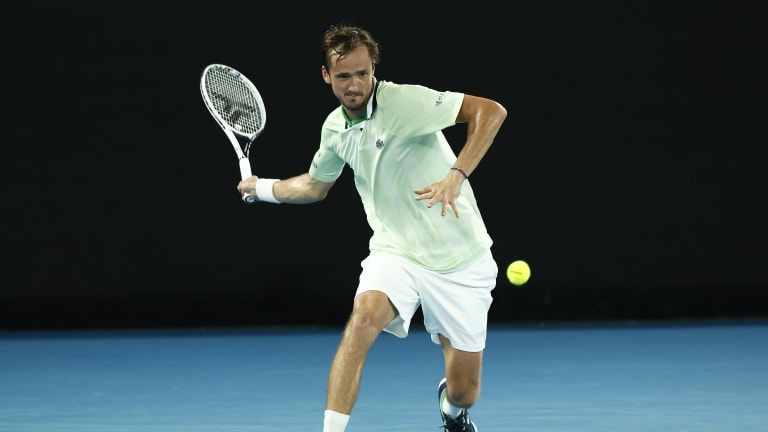Australian Open
Daniil Medvedev had shown us his genius in recent years, but against Felix Auger-Aliassime, he showed his grit
By Jan 26, 2022Australian Open
Australia at Last: Reflections on a first trip to the AO
By Jan 29, 2025Australian Open
Alexander Zverev must elevate his game when it most counts—and keep it there
By Jan 27, 2025Australian Open
Jannik Sinner draws Novak Djokovic comparisons from Alexander Zverev after Australian Open final
By Jan 26, 2025Australian Open
Alexander Zverev left to say "I'm just not good enough" as Jannik Sinner retains Australian Open title
By Jan 26, 2025Australian Open
Jannik Sinner is now 3-0 in Grand Slam finals after winning second Australian Open title
By Jan 26, 2025Australian Open
Taylor Townsend and Katerina Siniakova win second women's doubles major together at the Australian Open
By Jan 26, 2025Australian Open
Madison Keys wins her first Grand Slam title at Australian Open by caring a little bit less
By Jan 25, 2025Australian Open
Henry Patten, Harri Heliovaara shrug off contentious first set to win Australian Open doubles title
By Jan 25, 2025Australian Open
Aryna Sabalenka takes a rare loss in Australian Open slugfest
By Jan 25, 2025Daniil Medvedev had shown us his genius in recent years, but against Felix Auger-Aliassime, he showed his grit
How the Russian recovered from two sets down to reach the semifinals.
Published Jan 26, 2022
Advertising
Advertising

Medvedev has reached the semifinal round in four of his last six Grand Slam tournaments.
© Getty Images